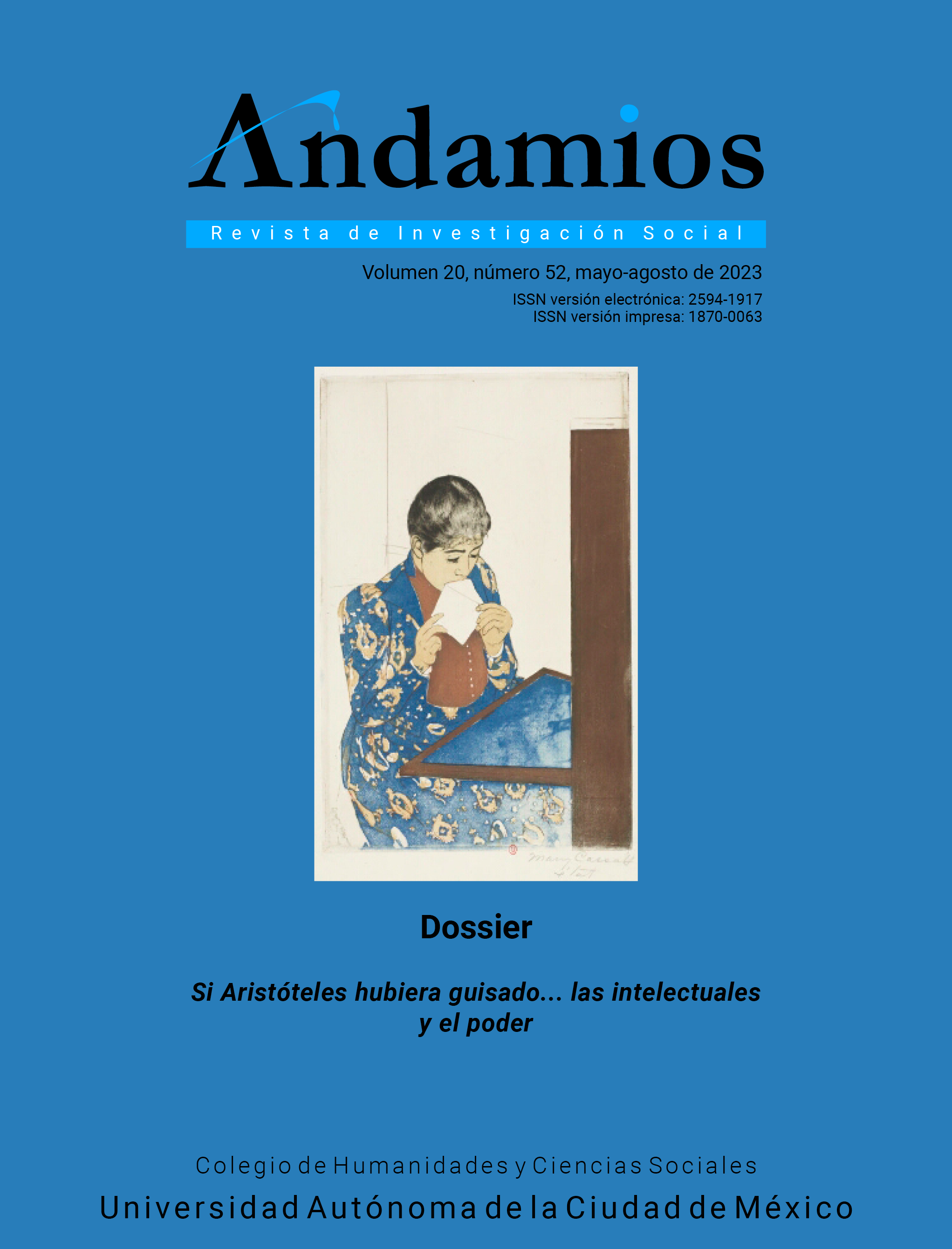Poder y género: carencias y dilemas
DOI:
https://doi.org/10.29092/uacm.v20i52.999Keywords:
Género, poder, agenda, hegemonía, alianzasAbstract
Para el feminismo el tema del poder ha sido pieza central; sin embargo, hasta ahora, el sentido principal que se le da al término tiene que ver con el control y el dominio que ejercen hombres (en forma individual, institucional, organizada o discursiva) sobre las mujeres (como personas y como colectivo). Esta situación ha derivado en la dificultad de analizar algunos fenómenos; por ejemplo, ¿cuál es el sentido y los resultados de que las mujeres ocupen posiciones de poder? (a nivel de jefaturas de Estado, parlamentos, etcétera) ¿cómo valorar a los movimientos de mujeres que tienen influencia en la toma de decisiones? (aprobación de leyes, creación de políticas públicas); ¿de qué manera entender a los hombres que individual o colectivamente cuestionan su posición de privilegio y se autodefinen como antipatriarcales? Este texto sostiene que el feminismo ya es una expresión de poder que disputa espacios de decisión en diversos ámbitos, y que el fortalecimiento de su influencia política requiere de la conformación de un grupo cohesionado que sea capaz de configurar una agenda y construir las alianzas necesarias para disputar la hegemonía del discurso y de la organización política.
Downloads
Published
Issue
Section
License
This Journal is licensed under Creative Commons Mexico 2.5. It is allowed to reproduce and disseminate the contents of the Journal for educational or research purposes, not for profit, as long as they are not mutilated and cite the source (Andamios, Revista de Investigación Social) and the author.
The copyright of the articles published in Andamios, Revista de Investigación Social are transferred by the author(s) to Universidad Autónoma de la Ciudad de México when the originals have been accepted, so that they are published and distributed both in the printed and electronic versions of the Journal. However, as established by law, the author(s) retains their moral rights. The author(s) will receive a form of assignment of copyright that they must to sign when their original has been accepted. In the case of collective articles, the signature of one of the authors will suffice, provided that the latter has obtained the consent of the others.
Authors may use the material of their article in other works or books published by themselves, with the condition of quoting Andamios as the original source of the texts.
The articles contained in this publication are the responsibility of their authors and do not compromise the official position of Andamios, Revista de Investigación Social of the Universidad Autónoma de la Ciudad de México.


